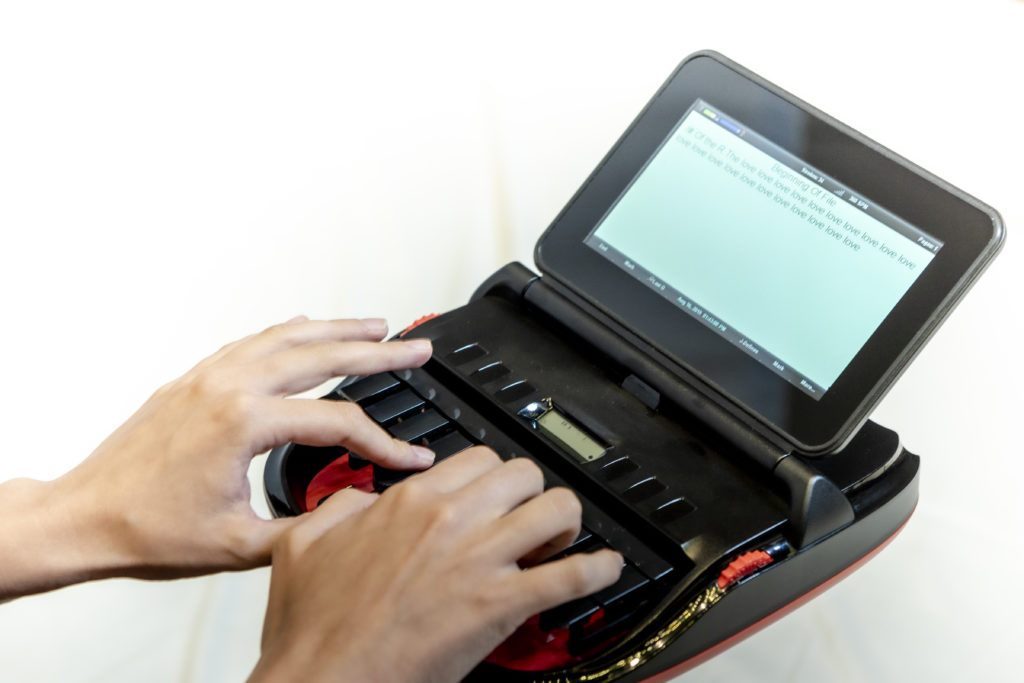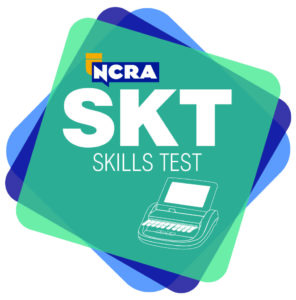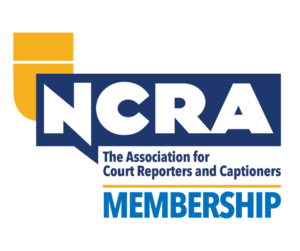
With so many professionals waiting to go back to work, finding productive ways to fill downtime during the quarantine ranged from taking up a new hobby to tackling closet shelves and drawers that haven’t been opened in — well, in some cases, years. For two NCRA members, however, downtime has been filled with cleaning up and building their dictionaries of briefs.
“As of right now, the time I have spent building and cleaning my dictionary is somewhere around 50 hours,” Terri Hanson, RPR, a freelance court reporter from Lihue, Hawaii, recently shared with the JCR Weekly.
“I have picked up a lot of writing suggestions from the Facebook group The Brief Exchange, adding approximately 600 outlines to my dictionary. Of course, COVID-19 outlines make up 100 of those new additions. I want to emphasize that adding to my dictionary is only the beginning, a foundation. In addition to the time adding, I have spent approximately 200 hours writing and practicing all the new terms. Instead of just listening to the news broadcasts, I write them. Practice, practice, practice. As the safer-at-home continues, I look forward to increasing my speed at writing my new entries faster and faster,” she said.
Likewise, NCRA member Lori Seiden, RPR, a freelance court reporter from Dover, Fla., has also been spending downtime working on her dictionary of briefs.
“I’ve been spending about five hours a week cleaning and building my dictionary and learning new briefs and right-hand phrase enders. I haven’t actually kept track of the number of additions and deletions, but I’ve been building a lot of job dictionaries that relate to the different types of court cases that I work on so that I can easily go back and pull up a job dictionary to refresh myself on the briefs that are specific to the type of case I’m on; i.e., homicide, family law, drugs, etc.,” she said.
“I have some really good briefs, but I don’t use them in every case, so this way I’m able to quickly glance over them or print them out and have them with me when I go into court,” she added.
Whether in quarantine or not, both Hanson and Seiden agree that working on their dictionaries is a constant task that helps keep them current with their reporting skills.
“I work on my dictionary constantly. It keeps evolving and getting better as my writing becomes shorter,” Seiden said.
“Every job I take means dictionary updates,” noted Hanson, who spent 16 years working as a freelance court reporter in Minnesota before moving to Hawaii, where she has spent the past nine years working. “It is an ongoing endeavor. There are always new proper names that I add, plus I never pass up an opportunity to write shorter, making up new briefs along the way,” she said.
“In my opinion, my dictionary is my greatest work of art and my most valuable asset. At the completion of every job, I make sure all the entries went into the proper dictionary, be it job, case, or personal dictionary,” Hanson added.
According to Seiden, it is extremely important for reporters to keep their dictionaries current, especially as their writing evolves. Never stop updating and building, she added.
“I’ve been a court reporter for 29 years. I’m an RPR working on my last leg of my RMR. The most part of 25 years were spent in civil depos, and the last four have been more criminal court work, which I love. For many years I avoided court work like the plague, until I found out how fascinating it is. It’s also a good way to keep your speed sharp as things move extremely quickly in a courtroom.”






[…] Reprinted here with permission of the JCR – Journal of Court Reporting, a publication of the National Court Reporters Association. This article was originally published in thejcr.com. […]